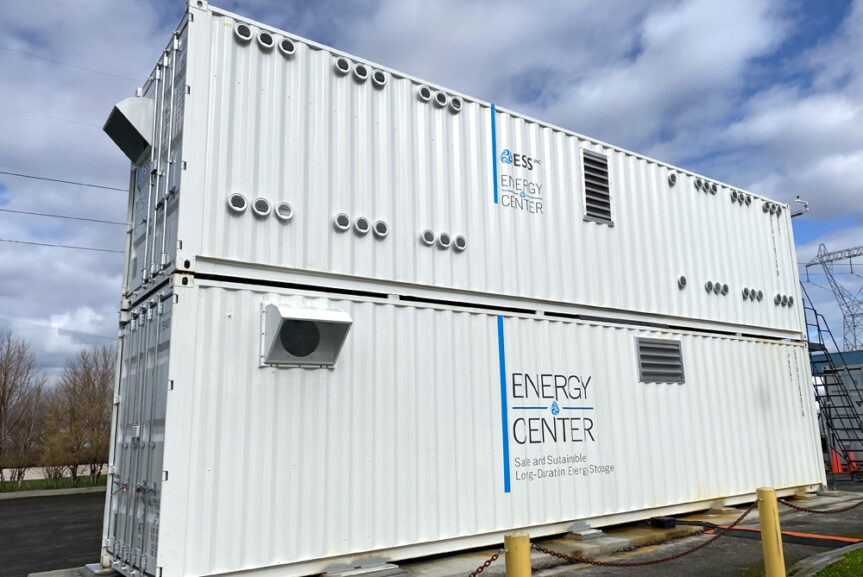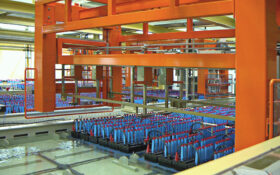Initial stages of a project has produced detailed plans for developing the UK’s first floating organic flow battery for decarbonising port energy storage and shore power for two cruise ships.
The BlueStor project was created by MSE International and funded by UK government’s Department for Business Energy and Industrial Strategy (BEIS) under its Longer Duration Energy Storage (LODES) competition.
A feasibility study of the BlueStor project found a large scale 50MW/600 MWh installation would be more compact overall than an equivalent lithium-ion installation
This, the company says, shows organic flow batteries are ideally suited to large-scale bulk energy storage applications, especially in locations where environmental sensitivity is high; for example ports and coastal areas.
The results of that feasibility study have given developers confidence to apply for Phase 2 funding, which will build and operate a pre-commercial prototype organic flow battery on a floating barge that will demonstrate supply of power to two visiting cruise ships when at berth in Portsmouth International Port, UK.
Phase 2 of BlueStor will also demonstrate the capability to procure, at times of low demand, the energy to be supplied to these vessels.
MSE International is the lead partner in BlueStor; energy and battery firm Swanbarton is supporting the battery engineering and construction as well as associated controls and interfaces; marine and offshore engineering and clean technology company Houlder is designing the battery platform and port/vessel interfaces, and organic flow batteries, CMBlu is supplying the electro-chemistry for the flow battery.
BlueStor is contracted by the BEIS under its Longer Duration Energy Storage Programme (LODES).
LODES forms part of the UK government’s 10 Point Plan for a green industrial revolution and is an important commitment for both BEIS and HM Government.












